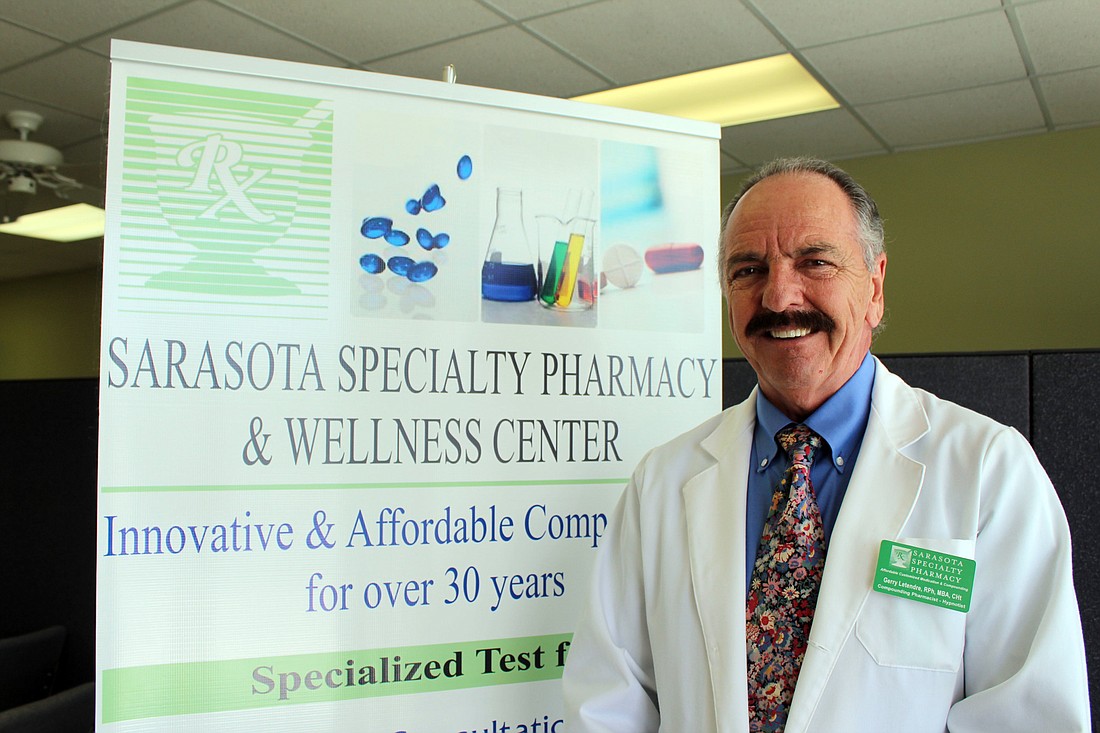- January 13, 2025
-
-
Loading

Loading

As women hit menopause, they might experience hot flashes, night sweats and a slowed metabolism. But local health officials say there’s no need to suffer.
Gerry Letendre, a registered pharmacist and president of Sarasota Specialty Pharmacy, specializes in bioidentical hormones, which are identical to natural hormones.
As people age, the body’s ability to produce its own supply of hormones declines, which results in more rapid aging and changes in the body. As hormone levels decline, people are at a higher risk for osteoporosis, heart disease and a decline in brain health.
Bioidentical hormones are most often used to balance a person’s hormone levels during menopause to help restore a higher quality of life, Letendre said.
When hormone levels are normal, a person experiences higher energy levels, a higher metabolism, an increased libido and an improved mood.
“Some women sail through menopause without too many symptoms,” Letendre said. “Others find them very disruptive, and some are willing to tolerate whatever the symptoms are. But there’s no need to suffer through that.”
Some people have advocated for earlier use of the treatment, when men and women are in their 20s and 30s, though Letendre said that would increase the risk for complications later in life.
Sarasota Specialty Pharmacy makes each bioidentical treatment specific to each client using data gathered from a saliva test. Each person’s treatment contains hormone adjustment levels specific to the client’s needs.
“The old saying of, ‘One size doesn’t fit all’ is very appropriate for what we do because everyone’s hormone balance is different,” Letendre said.
The bioidentical hormones are often applied in a topical cream, so the dose can be adjusted more easily. They are not, however, without their risks.
A 2019 study found that when taken incorrectly, hormone treatments can increase a person’s risk for breast cancer. A separate 2019 study found that when prescribed individually, hormone treatment can help balance menopausal women’s hormones, but when prescribed incorrectly, it can increase the risk for cardiovascular health and types of cancer.
However, the largest risks associated with hormone therapy are found when people take synthetic replacements instead of bioidentical replacements, Letendre said.
Bioidentical hormones have the exact chemical composition of the hormone in a person’s body. Synthetic hormones, however, are created with add-on side chains to the original hormone and could have altered chemical bonds.
The synthetic hormones often are stronger than the body’s hormone, so they will send abnormal messages to the body, which results in unwanted side effects, such as breast cancer, stroke, heart disease and blood clots.
Research from the Women’s Health Initiative shows that the risk of breast cancer increases when a person takes progestins, which is found in synthetic hormones. That risk decreases when hormones are balanced with progesterone, found in bioidenticals.
Further, research from the National Cancer Institute shows that those who took treatments with estrogen and progestin had increased risk for vaginal bleeding, urinary incontinence, dementia, stroke and blood clots.
Letendre said that if people do decide to begin hormone treatment, they should consult with a physician to assess risks and find the right solution for them.
“The sad part about all of this is many women feel they have no options, or they’ve heard horror stories,” he said. “There’s no need to suffer. When taken correctly, these can improve quality of life.”